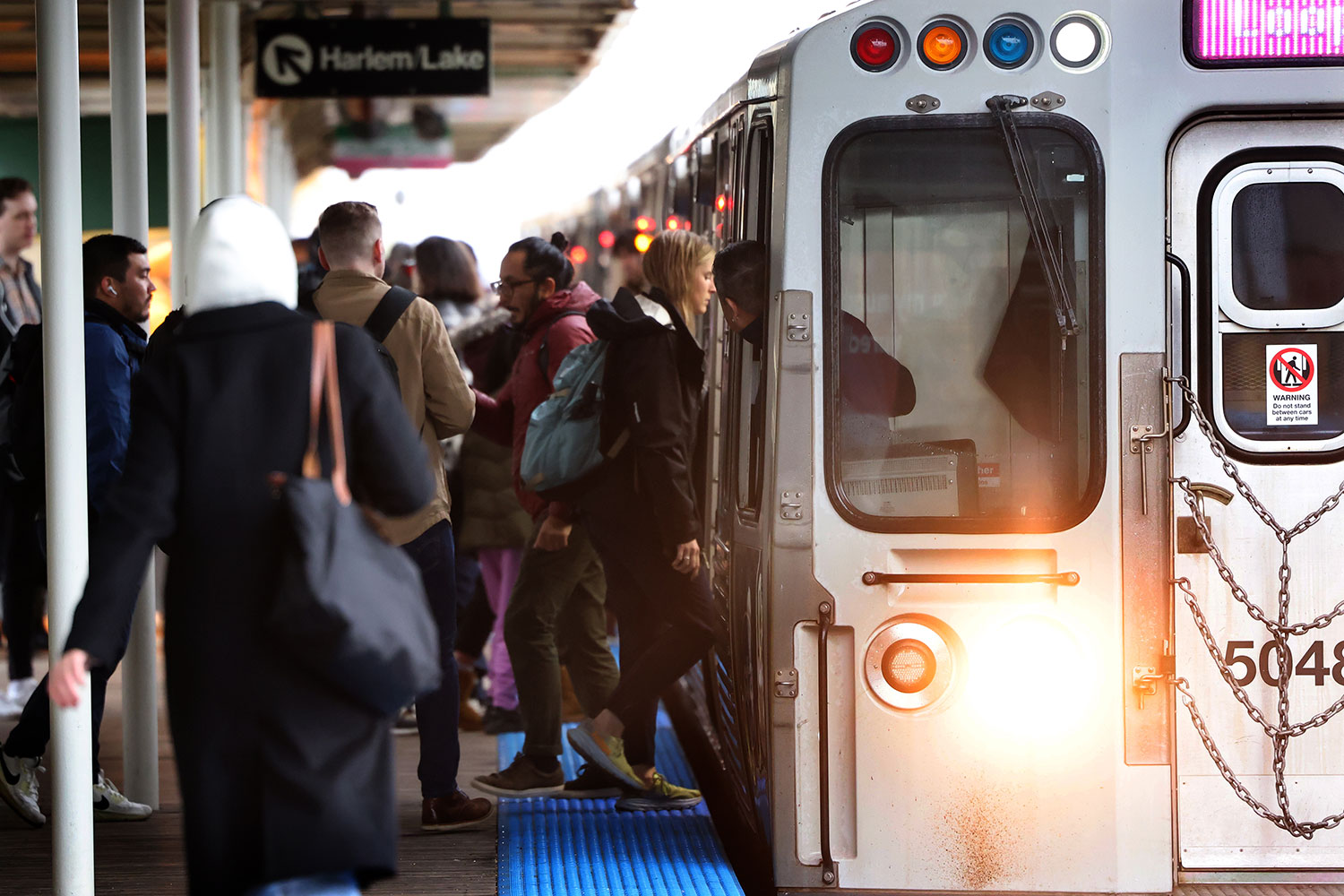Last month, I was on the Pink Line when a young man walked onto the train with a case of Corona Extra.
“What’s up, Chicago?” he shouted. “I’m your fuckin’ bartender. Bottle for a dollar. Don’t pay four dollars at a bar.”
The cut-rate bartender approached a man sitting with his head in his lap, greasy hair dangling over his knees.
“I’ll treat you good if you treat me good. I won’t hit you with a bottle.”
He tore open the case and pulled out a bottle.
“Hey, man what’s wrong?” he asked the huddled man. “Talk to me.”
The man shook his head.
“Have one on the house.”
The bartender held out a bottle. The huddled man accepted.
“Don’t waste your money at a bar owned by some rich prick! You could save fifty, a hundred dollars a month!”
The CTA, everyone seems to agree, still has not recovered from the COVID-19 pandemic. According to a 2023 WBEZ survey, “Slightly under half of riders (45%) who took the survey said they feel ‘somewhat unsafe’ or ‘very unsafe’ riding a bus or train.” It’s gotten so bad that a majority of the City Council wants to fire CTA president Dorval Carter from his $376,000-a-year job. Carter can’t make the trains run on time, and when they do show up, they’re full of homeless people smoking, talking to themselves, or badgering riders for change. The ridership of 1 million a day is only 62 percent of pre-pandemic levels, worse than several other major cities, and Crain’s Chicago Business reports that Chicagoans are trading “Ventra cars for car keys” because of unreliable service and safety concerns.
“I take the Red Line almost every day for work, and there’s always this anxious feeling like, ‘What’s going to happen today?’” a young man told WBEZ. “I’ve seen people being harassed, assaulted. I’ve seen people doing drugs and defecating on the train. It seems to have only gotten worse since the pandemic.”
Carter may be doing a crummy job, especially for all the money he’s getting paid, but I don’t blame him for anything that happens inside the trains. There is no better place to see American society’s problems on display than an L train. That’s inevitably true of any institution where the price of admission is only $2.50 — or free, if you jump a turnstile — and where a ticket is good all day. Homelessness, mental illness, immigration, and economic inequality are all part of the CTA experience, as people on the way to jobs are forced to mingle with people who have no jobs. The L trains are where the lower class meets the middle class. (Not the upper class. The upper class drives, or is driven.) There ought to be sociologists on the L, studying the interactions of the social orders. If we want to make life inside the trains better, we’re going to have to make life outside the trains better. Chicago is a reflection of America, and the CTA is a reflection of Chicago. Want to make the L better? Make Chicago better.
When I switched from the Pink Line to the Red Line, a homeless man was lying across an entire L bench. His greasy, crusty jeans looked as though they’d been dipped in vomit. The woman sitting across from him pulled her jacket over her nose, to block his body odor. Every once in a while, he opened his eyes, but he never stirred. He had a place to sleep, and if that meant other people didn’t have a place to sit, well, his problems were worse than theirs.
Another day, another L ride. A man polled his fellow passengers on whether he should commit suicide.
“Do you think I should kill myself?” he asked. “Do you think I should end my life? Do you think I should jump in front of this train?”
He didn’t get an answer. I never read about a suicide by L in the papers soon after, so I presume he took the silence as a “no.”
The migrants are on the trains, too. There’s no bigger social or political issue in Chicago. A woman carrying a baby on her back walked from passenger to passenger with a tray of candy, $2 apiece.
Can the L get any more annoying? Of course it can. I was riding a crowded Red Line car toward Howard Street when a young man boarded the train wearing an accordion. He launched into a bright tarantella, played for a minute, then mumbled, “Thank you, God bless you” in an Eastern European accent and walked up and down the car, hoping the riders who had just been forced to listen to his accordion stylings would reach into their pockets for a dollar. No one looked up from their phones. Buskers are supposed to play on the platform. That’s part of the public transit compact. And then there’s the famous bumper sticker saying, “Play An Accordion. Go to Prison. It’s the Law.”
Unfortunately, it’s not the law, and accordion players are desperate for work, and so, like so many other desperate people, they’re riding the trains of Chicago.



